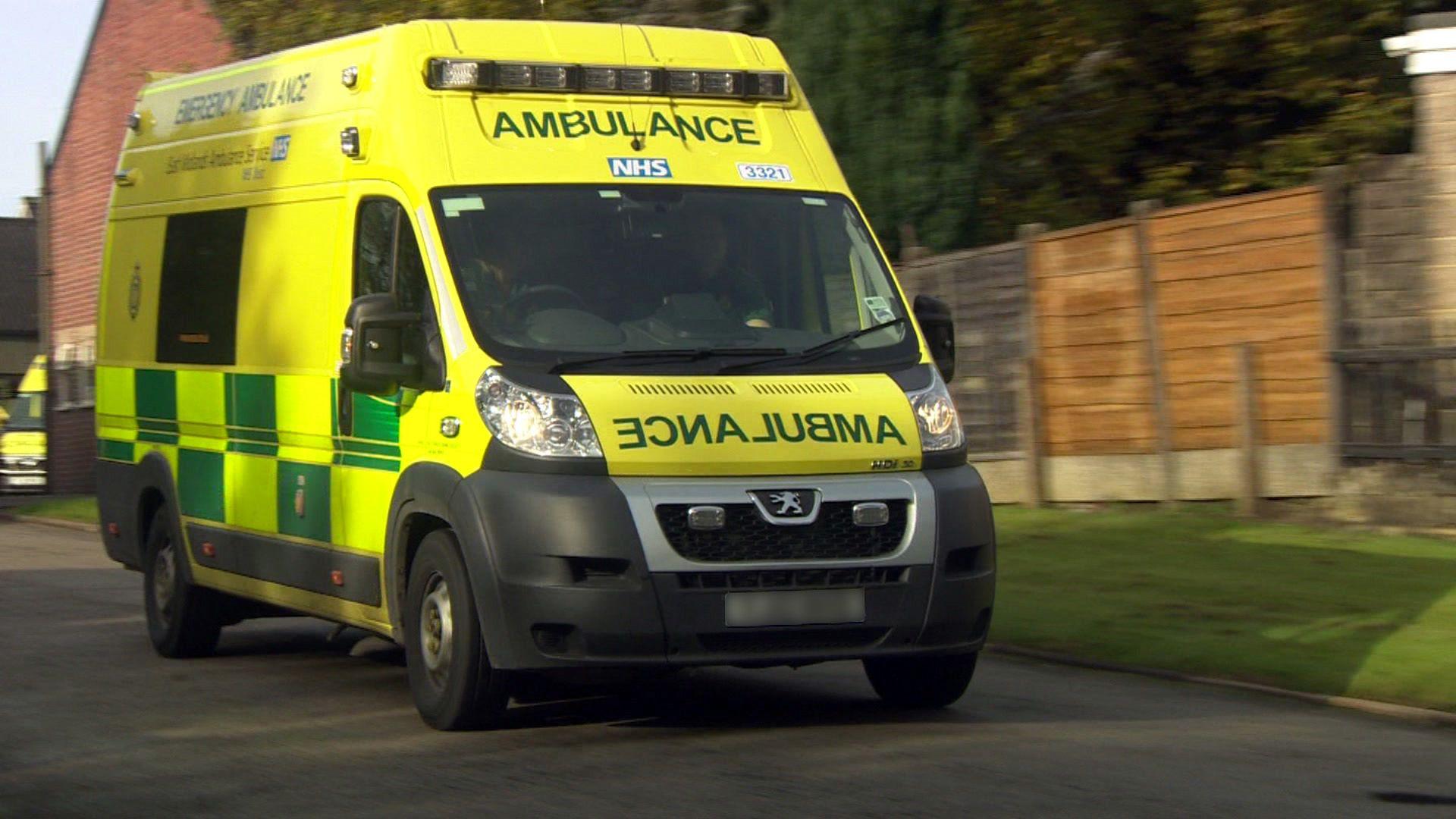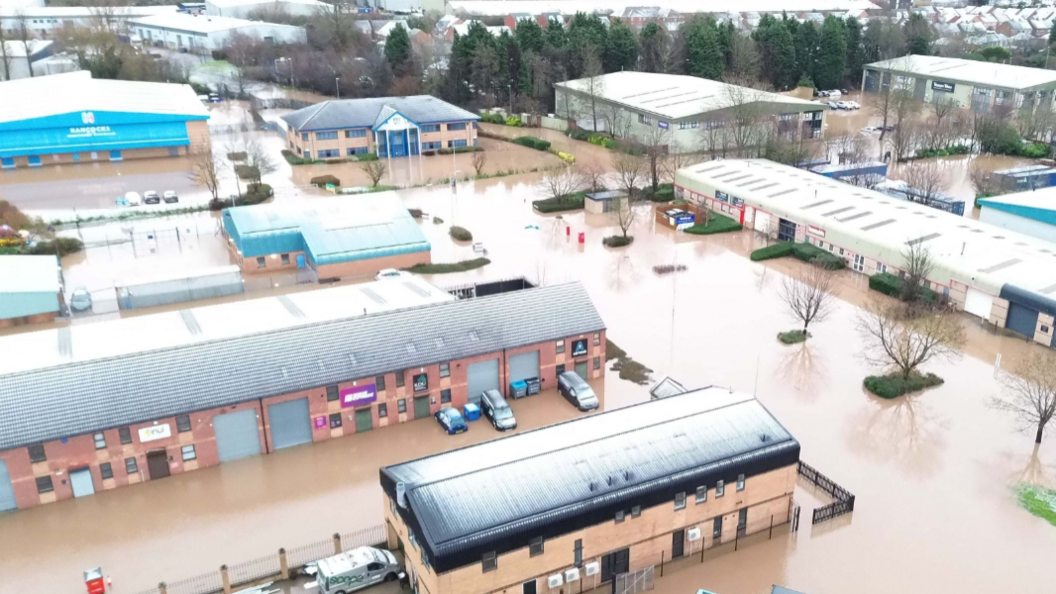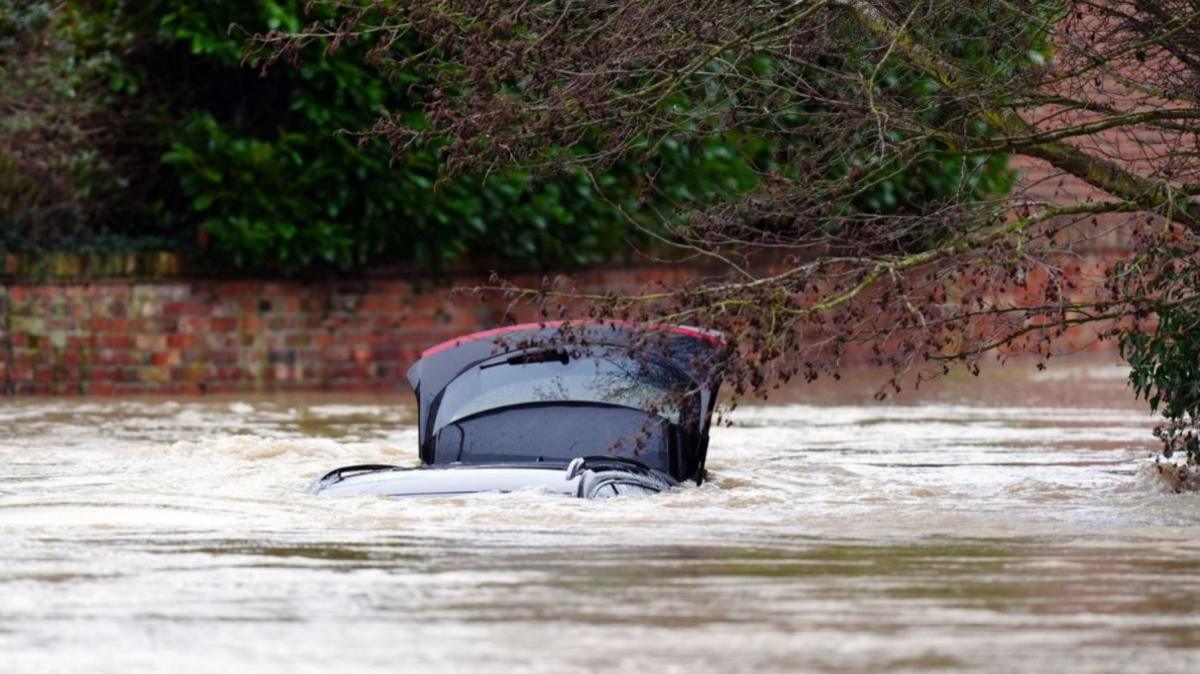Ambulance service declares first critical incident

East Midlands Ambulance Service said all options had been exhausted
- Published
East Midlands Ambulance Service (EMAS) has declared its first ever critical incident after flooding hit the region.
EMAS raised its resource escalation action plan to level four - the highest level that indicates a potential for failures in the service - in response to pressures on the NHS and ambulance services on 26 November.
It has remained at that level ever since and, at 18:00 GMT on Monday, EMAS declared a critical incident due to a combination of "significant patient demand, pressure within hospitals and flooding".
EMAS added it had "put out more ambulance resource than ever before".
EMAS covers Nottinghamshire, Derbyshire, Leicestershire, Rutland, Northamptonshire and Lincolnshire.
More than 500 emergencies were waiting for a response from the ambulance service when it declared the critical incident on Monday, with the service saying there was "a great risk" of patient harm.
'Use services wisely'
The trust said the declaration was a "formal ask" of partner services to help "mitigate the risk for people in our communities".
This includes asking hospitals for the rapid release of ambulances from hospital departments to enable the service to respond to life-threatening emergencies.
From Tuesday morning, local NHS clinical hubs will be taking category 3 calls, such as abdominal pains, from EMAS and provide support for these patients.
Similar calls from NHS 111 will also receive clinical validation from the service provider before an ambulance is sent for.
In addition, members of the public are urged to use "NHS services wisely" and to seek alternative care via a pharmacy, urgent treatment centre, or GP if their illness or injury is not life-threatening.
EMAS's director of operations Ben Holdaway called the declaration a "huge step" for the service and urged people to only call 999 if they believed they were in a life-threatening situation.
"And if you do call, it's likely there will be a delay in us getting to you," he said.
Mr Holdaway added the critical incident was ongoing and would be reviewed on Tuesday afternoon.
Aerial footage shows Leicestershire floods
Flooding caused large-scale disruption across the East Midlands on Monday, with roads and travel services across the region affected.
A major incident was declared due to widespread flooding in Leicester, Leicestershire and Rutland, with 59 people rescued.
Leicestershire Fire and Rescue Service said it had received more than 380 calls on Monday, attended 56 incidents and evacuated people from 209 homes.
On Monday evening, the Environment Agency issued a severe, risk-to-life flood warning for a stretch of the River Soar in Barrow upon Soar.
It said rising levels at the Pillings Lock posed a risk to properties at a nearby marina and caravan park.

Analysis
By Rob Sissons, BBC East Midlands health correspondent
The start of the year is never easy for the NHS, and a combination of the usual winter pressures, rising demand and flooding are the factors behind the declaration.
Pressure has been building at the service since November, with the usual strains seen in winter arriving earlier than in previous years.
The trust remains concerned about the numbers of ambulances kept waiting outside hospitals to accept patients.
There is extra emphasis put on emergency departments to accept patients as soon as possible.
Get in touch
Tell us which stories we should cover in Nottingham
Follow BBC Nottingham on Facebook, external, on X, external, or on Instagram, external. Send your story ideas to eastmidsnews@bbc.co.uk, external or via WhatsApp, external on 0808 100 2210.
- Published6 January

